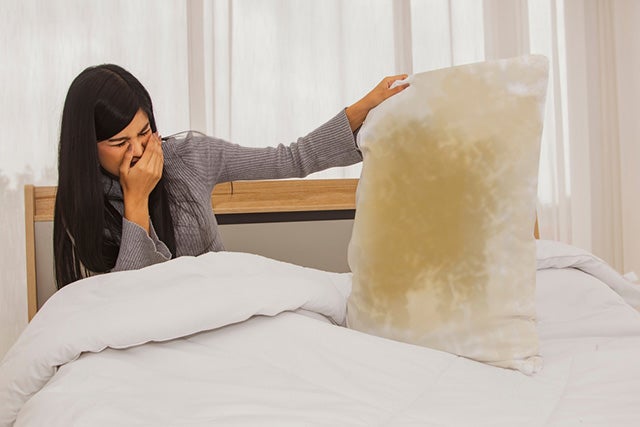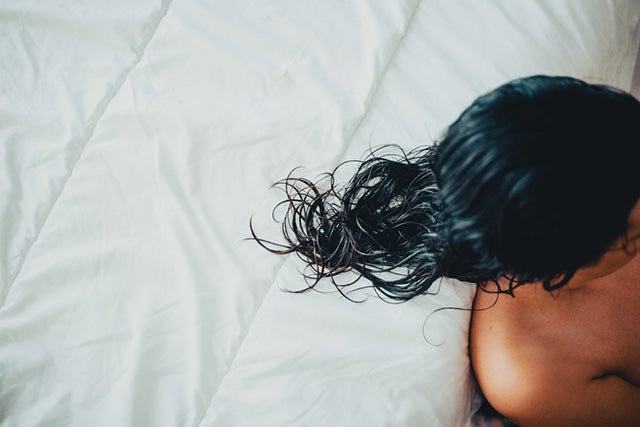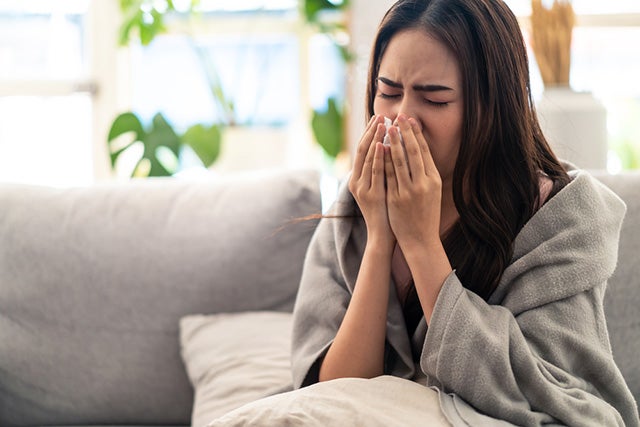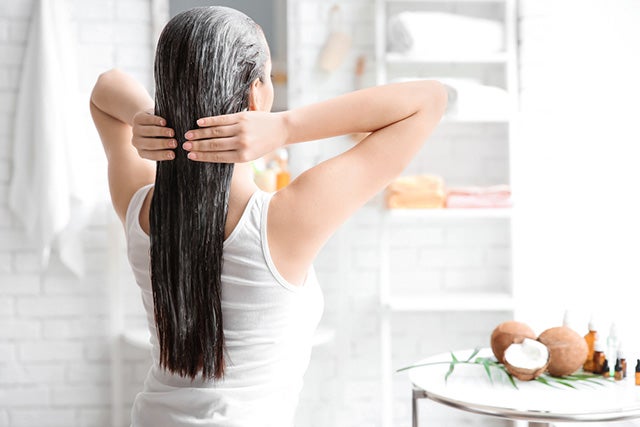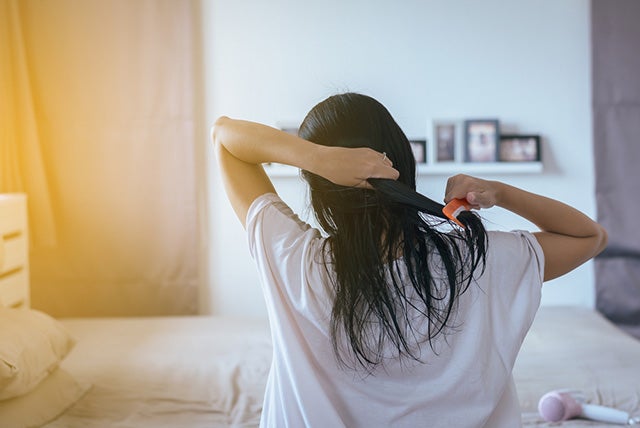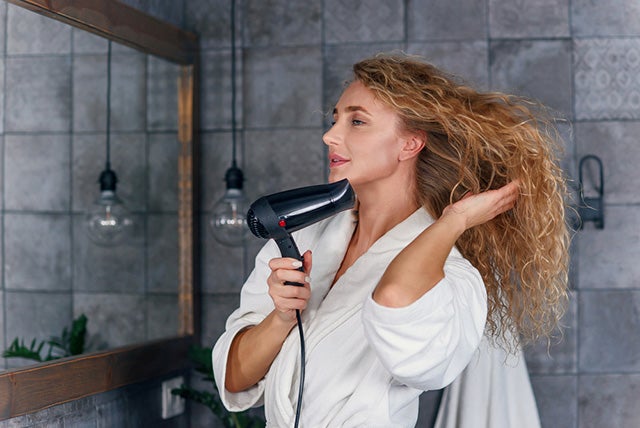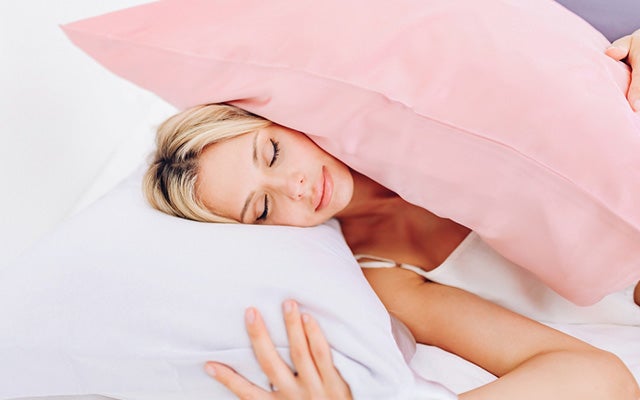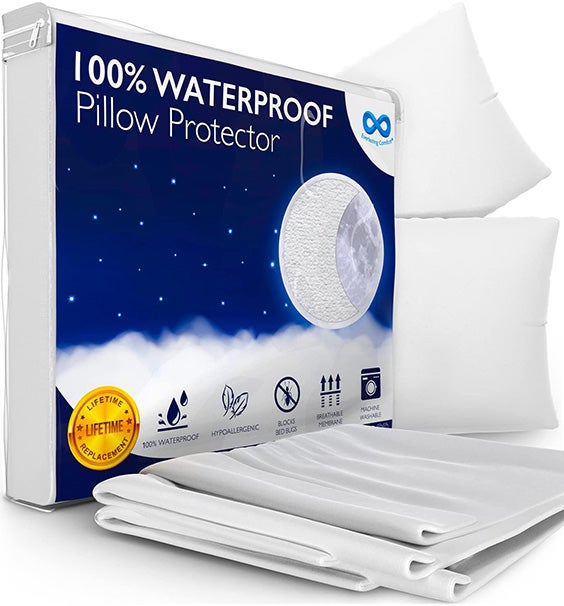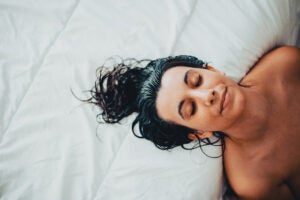
So, if you’re going to sleep with wet hair, then you might as well do it right. We’ll be discussing how to properly sleep with wet hair and cause minimum damage.
Pros and Cons of Sleeping with Wet Hair
The truth is there isn’t much good to gain from sleeping with wet hair. If you have the option, then always opt for sleeping with dry hair. It’s safer and healthier for your hair, head, and bed. Sleeping with your hair wet once in a while is no reason to be scared, since the damage isn’t immediate. There is only potential for harmful damage if you sleep with wet hair every day.
• Fungal Infections
This is the first danger of sleeping with wet hair. You can develop fungi such as Malassezia on your head. This type of fungi creates an environment ideal for dandruff and dermatitis. Your pillow can also be a housing space for different types of fungi, and wet hair will only make the surface of your pillow more fungi-friendly.
Depending on the material, your pillow is a suitable breeding ground for up to 16 different types of fungus. These fungi can trigger allergic reactions and can be especially troublesome for those with weaker immune systems.
• Hair Breakage
The weakest point of your hair is when it’s wet. While you’re tossing and turning in your sleep, your hair is susceptible to breakage. Don’t sleep with a braid or bun if your hair is wet to prevent a greater risk of breakage. Open hair is the best option to prevent any additional tension that could strain your hair.
Can You Catch a Cold from Sleeping with Wet Hair?
You’ve probably heard this a lot; sleeping with wet hair will give you a cold. This isn’t actually true. Being cold doesn’t actually have anything to do with catching a cold. You might sniffle and sneeze, but that doesn’t mean you’ve caught a virus; your body just wants to warm up a bit.
The cold is a virus, and there are over 200 different variations to this virus that you can catch. The virus enters your body from either your eyes, nose, or mouth and can be spread through exposure or contaminated surfaces. As you can see, wet hair doesn’t fit into this equation anywhere.
Tips for Sleeping with Wet Hair
If you don’t have another option and have to sleep with wet hair, then there are precautions you can take so you don’t ruin it.
— Coconut Oil and Conditioner
These are two things you’ll want to apply to your hair before going to bed. Coconut oil helps reduce the amount of moisture your scalp absorbs, so the hair cuticles don’t become loose and sensitive to falling. Conditioner seals the hair cuticles, preventing friction and making your hair both stronger and silkier, so it doesn’t tangle as easily.
If chemically treated or bleached, then conditioner should be a routine must for you, especially if you’re going to sleep with wet hair.
— Detangle Hair
Tension and strain on your hair is the last thing you want before going to bed. Make sure to gently brush or comb your hair at least once before sleeping, so your hair is free of tangles.
Since it’s best to sleep with open hair while it’s wet, there will inevitably be tangles in the morning, so getting a good start with no tangles is better than waking up with a moist rats’ nest on your head in the morning.
— Dry As Much as Possible
Even if you can’t dry your hair out completely, it’s best to dry as much as you possibly can. Make sure water is not dripping from your head before you go to bed.
Use a blow dryer to quickly dry it up or rub your hair with a towel for a good minute or two. Your hair may still be damp, but it won’t be completely wet which is a better situation to be in.
— Use a Silk Pillowcase
Silk is easy-going on the skin and hair since it does not create as much friction. You can easily flow over the material and not get caught in it. Sleeping with wet hair, friction is the last thing you want and a silk pillowcase that your hair can glide over is the best option for you.
How to Protect Your Pillow When Sleeping with Wet Hair
The best way to protect your pillow is by using a proper pillowcase. Some materials, such as silk, are good choices for when your hair is wet since it won’t absorb the moisture or damage your hair. You want a material that will protect your pillow’s filling from the water, not absorb it.
You can also get a waterproof pillowcase or protector. These pillowcases will keep the internal stuffing from getting ruined and stop smells and bacteria from growing on your pillow. The trick to these pillows is to routinely change and clean them to make sure you’re not wearing them out over time.
Many of these pillowcases are machine washable, though there are some which require gentle handwashing to maintain their durability.
Bottom Line
Sleeping with wet hair isn’t a good idea, but there are some situations where you can’t avoid it. Late-night showers, styling your hair for the next day, these situations happen, and wet hair is what you’ll end up sleeping with. The best solution is to be prepared and make sure you’re doing everything you can for your hair, so it doesn’t get ruined at night. If you protect both your hair and your pillow, then there is no harm in occasionally sleeping with a wet head. Check out our best pillows for more great recs!
Photo credit: EGHStock/Shutterstock; chalermphon_tiam/Shutterstock;
GBALLGIGGSPHOTO/Shutterstock; Hananeko_Studio/Shutterstock;
New Africa/Shutterstock; Gorynvd/Shutterstock;
StockFamily/Shutterstock
